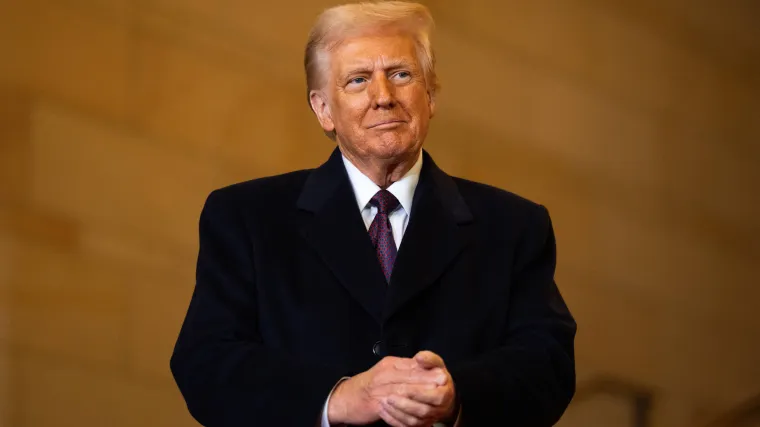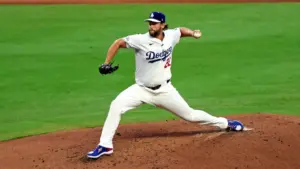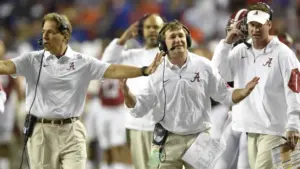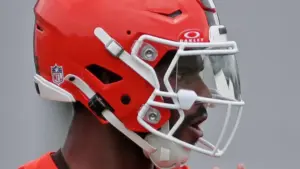President Donald Trump signed an executive order Thursday that aims to prohibit third-party, pay-for-play payments to college athletes, the White House announced.
The legislation also directs the Secretary of Labor and the National Labor Relations Board to clarify the status of student-athletes “in order to preserve non-revenue sports.”
While it is unknown what entity would carry the authority to enforce the prohibition of pay-for-play payments, the executive order does not apply to “legitimate, fair-market-value compensation that a third party provides to an athlete, such as for a brand endorsement,” as it partially aims to end “bidding wars” for college athletes.
📲 Follow The Sporting News on WhatsApp
Here’s what to know about Trump’s new executive order regarding pay-for-play and more aspects of college sports.
Donald Trump’s college sports executive order, explained
On Thursday, the White House released a fact sheet titled “President Donald J. Trump Saves College Sports,” which detailed an executive order that the president signed. Overall, the legislation’s goal was described as protecting “student-athletes and collegiate athletic scholarships and opportunities, including in Olympic and non-revenue programs, and the unique American institution of college sports.”
Shortly after, the White House released the full executive order.
The executive order included a few rules regarding collegiate sports, the most consequential being a prohibition of “third-party, pay-for-play payments” to athletes. However, that ban does not apply to “legitimate, fair-market-value” compensation that a third party provides to an athlete, which includes brand endorsements.
Here are the other requirements included in Trump’s executive order regarding college sports, based on the legislation’s fact sheet:
- The order requires the “preservation” and “expansion” of opportunities for scholarships and competition in collegiate women’s sports and non-revenue sports.
- Any revenue-sharing permitted between universities and collegiate athletes is required to be “implemented in a manner that protects women’s and non-revenue sports.”
- The order requires the Secretary of Labor and the National Labor Relations Board to “clarify the status of student-athletes” in order to “preserve non-revenue sports” and the opportunities that college athletics provide.
- The order requires the Attorney General and the Federal Trade Commission to take “appropriate actions” in aiming to “protect student-athletes’ rights” and put an end to “endless, debilitating antitrust and other legal challenges.”
- The order requires the Assistant to the President for Domestic Policy and the Director of the White House Office of Public Liaison to “consult with the U.S. Olympic and Paralympic Teams and other organizations” with the goal of protecting the role of college athletics in developing American athletes.
The fact sheet for the order also noted that President Trump recognizes the “critical role of college sports” along with the “urgent” need to address the legal issues it faces for the future. The legislation describes some of those issues as “litigation seeking to eliminate the basic rules of college sports” and “escalating private-donor pay-for-play payments in football and basketball that divert resources from other sports and reduce competitive balance.”
When it comes to NIL, the fact sheet for the executive order reads that “legitimate, third-party NIL opportunities for players” have led to “pay-for-play bidding wars,” which have caused an “oligarchy of teams that can buy the best players.”
When it comes to the order’s prohibition of pay-for-play payments, it is unknown what entity would enforce the rules.
NCAA president Charlie Baker also released a statement on the executive order Thursday.
“The NCAA is making positive changes for student-athletes and confronting many challenges facing college sports by mandating health and wellness benefits and guaranteeing scholarships, but there are some threats to college sports that federal legislation can effectively address and the Association is advocating with student-athletes and their schools for a bipartisan solution with Congress and the Administration,” Baker’s statement read.
“The Association appreciates the Trump Administration’s focus on the life-changing opportunities college sports provides millions of young people and we look forward to working with student-athletes, a bipartisan coalition in Congress and the Trump Administration to enhance college sports for years to come.”
Last month, the House vs. NCAA settlement was officially approved, which paved the way for institutions to share revenue directly with athletes, including nearly $2.8 billion in backpay.
On3’s Pete Nakos noted in the wake of the executive order that the NCAA has “lobbied for federal legislation,” then added two of the looming questions from the new legislation:
Two key questions that need to be answered:
+ Who enforces the prohibition on pay-for-play
+ What will the penalty be for violating the order https://t.co/rCYT1gkqxu— Pete Nakos (@PeteNakos_) July 24, 2025
Yahoo Sports’ Ross Dellenger also reported that Baker and the NCAA’s “focus” remains on congressional legislation as a more permanent solution, rather than just the executive order.






